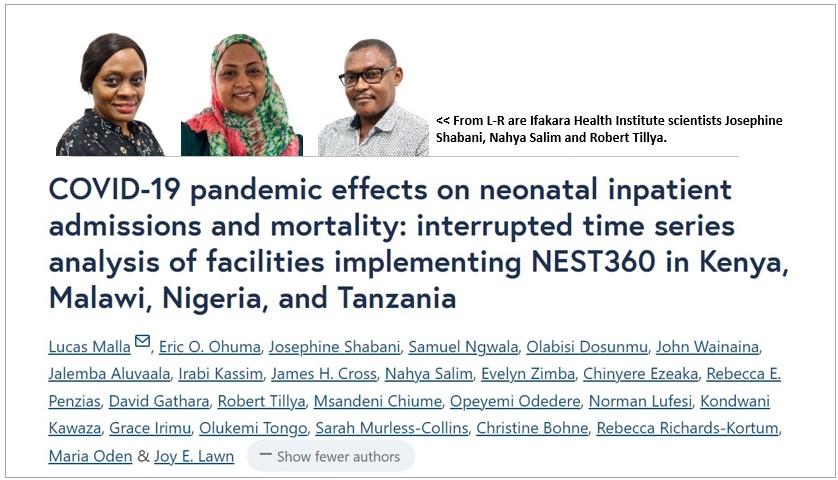
ANALYSIS: How COVID-19 pandemic reshaped newborn care in Africa

A comprehensive analysis conducted by the NEST360 Alliance on the impact of COVID-19 pandemic on newborn care has underscored the need for strong and adaptable healthcare systems to protect newborn health during global health emergencies.
The study assessed the indirect effects of COVID-19 containment policies on newborn admissions and mortality across 67 neonatal units in four African countries – Kenya, Malawi, Nigeria, and Tanzania – from January 2019 to December 2021.
NEST360 program and its goals
The four countries are part of a consortium implementing the NEST360 (Newborn Essential Solutions and Technologies) program, which aims to improve the quality of care for small and sick newborns. The NEST360 Alliance supports African governments in reducing inpatient newborn deaths by implementing a sustainable health system strengthening package, which includes innovative devices, training, data systems, and quality improvement with mentorship.
Learn more about NEST360 here: https://nest360.org/
Observation, impact on newborn mortality
The study, now published on the BMC Pediatrics journal, observed a 15% drop in newborn admissions between February and March 2020, with a continued 2% monthly decrease until December 2021.
Despite the decrease in admissions, overall newborn mortality did not significantly change. However, the impact varied across different units, with some experiencing increased mortality and others seeing a decrease, noted the scientists.
“Our analysis showed a substantial effect on neonatal admissions, aligning with findings from other similar studies,” the scientists reported. “These results are unsurprising as COVID-19 containment measures caused disruption of health service delivery and demand across various levels of healthcare, including prenatal, maternal, and pediatric care.”
Measures that protected newborn care
To complement the quantitative data, the NEST360 Alliance conducted qualitative research to identify barriers and protective factors during the pandemic.
The study identified several protective measures that helped safeguard newborn care, including enhanced infection control practices, increased use of telemedicine, and investments in medical infrastructure such as oxygen supply and device maintenance. These measures were crucial in mitigating the negative impacts of the pandemic.
The qualitative research also underscored the necessity for stronger infrastructure and workforce to enable more resilience of newborn care systems in the face of future crises.
Call to action for future preparedness
The NEST360 Alliance concluded the analysis by emphasizing the need for sufficient resources to protect newborn care and the importance of adaptable healthcare policies. Additionally, they called for greater awareness and support for vulnerable newborns and their families during crises.
“Currently, 63 countries are off track to achieve the Sustainable Development Goal 3.2 of reducing neonatal deaths to 12 per 1000 live births by 2030. These efforts may be further derailed by unexpected disruptions to healthcare systems,” noted the scientists. “To mitigate future risks, it is essential to enhance the capacity of health systems to respond quickly and effectively to pandemics, making them more resilient to shocks.”
This study stands as the largest primary analysis to date on the indirect impact of COVID-19 on neonatal care in Africa, setting a precedent for future research and policy-making in global health.
Ifakara NEST360 team behind the study
A team of scientists from Ifakara Health Institute implementing the NEST360 program in Tanzania contributed to this study. They include Josephine Shabani, Nahya Salim, Robert Tillya and Irabi Kassim.
Read the publication here.
